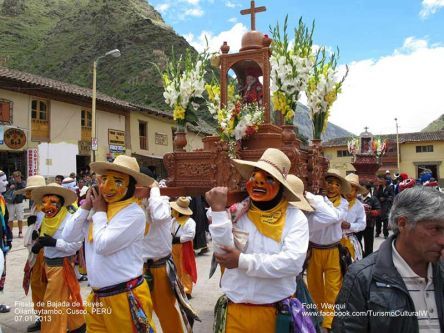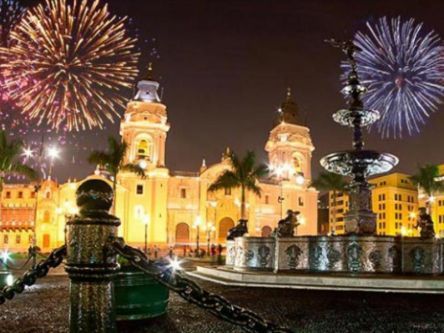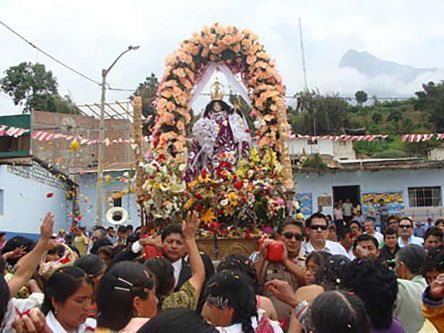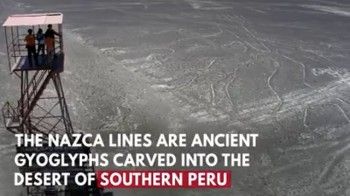The world almost ended long time ago. The seas rose, and the people of the earth were lost forever in the swirling waters - not all the people, fortunately, one man was saved. This is how it happened…
In Peru, an Indian was looking for a fine place where his llama could graze. The Indian was very fond of his animal. So, he moved from pasture to pasture, never sure that he had reached the perfect feeding ground for so fine a llama. At last, the Indian discovered a meadow where the grass was rich, thick, and green.
“This is the place I have been seeking,” the Indian told the llama happily. “Here you can graze to your heart’s content.”
The llama lifted his head, turned it from side to side on its long slender neck, and sniffed the air. Then with large, soft, sad brown eyes, the llama looked at its master and moaned.
“Take me from this place!” the llama said. “It is impossible for me to graze here.”
The Indian studied the meadow. The sun shone on the field. The grass, bending gently before a playful breeze, rippled in waves of green as far as the eye could see.
The Indian stared at the llama. “Take you from this place when I have spent days finding it? What madness is this? Eat. I order you to eat.”
Tears filled the llama’s eyes and ran down its cheeks. “I cannot eat here,” the llama sobbed. “I beg you, master, take me from this place.”
“Stubborn animal!” the Indian shouted. “Either you eat, or I shall beat you.”
“Then beat me,” the llama answered. “I will not stay here.
“Why?” the angry Indian cried. “Why do you carry on this way? What is wrong with this pasture?”
“There is nothing wrong with the pasture,” the llama told the Indian. “But in five days it will disappear.”
“How is that possible?” the Indian demanded.
“Within five days the seas will rise and swallow the land. All the people of the earth will die.”
When the Indian heard this, he became frightened. He knew that animals had an instinct not given to man. Now he, too, wished to leave the pasture as quickly as he could. But he did not know where to go.
“My friend,” the Indian asked the llama, “are we doomed to die? Is there no place we can go to escape this terrible fate?”
“Let’s go at once to Villacoto,” the llama answered. “Villacoto! Of course!” Villacoto was the peak of a high mountain. “We shall go there at once.”
Following the advice of the llama, the Indian took enough food to last five days. Together, master and animal fled to the top of the mountain.
“Look, master!” the llama said when they reached the mountain peak at last. “Do you see now that I have told you the truth?”
The surprised Indian looked about. “Every bird and animal on earth must be here!” he said. Then the Indian stared down at the valleys below. “The waters are rising,” he muttered. “Already the land is disappearing from sight.”
For five days the Indian, the llama, and all the animals of earth watched the waters rise higher and higher. The waters covered the bushes and the trees and attacked the sides of the mountain itself.
On the fifth day, the flood waters almost reached the top of the mountain. The angry sea was so close to the Indian, the llama, and the other animals were forced to huddle together to escape being drowned. Nearer and nearer the water came until the tail of the fox hung limp and wet, and the tip of it turned black.
When it seemed as if even the tall mountain peak would not be safe, the angry seas receded. Slowly the level of the water fell. When another five days had passed, the land appeared again.
According to this myth, the present human race comes from that Indian in Peru. And humans are here only because a llama cried and would not eat.






























